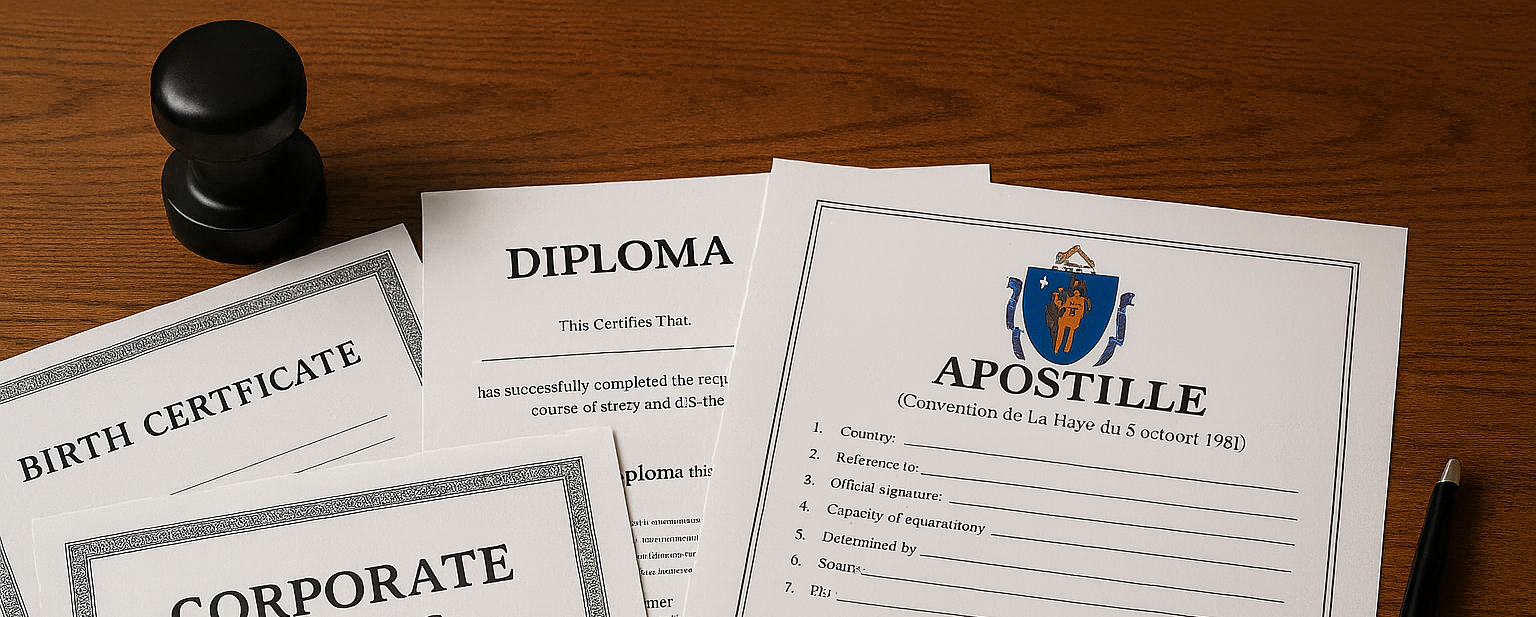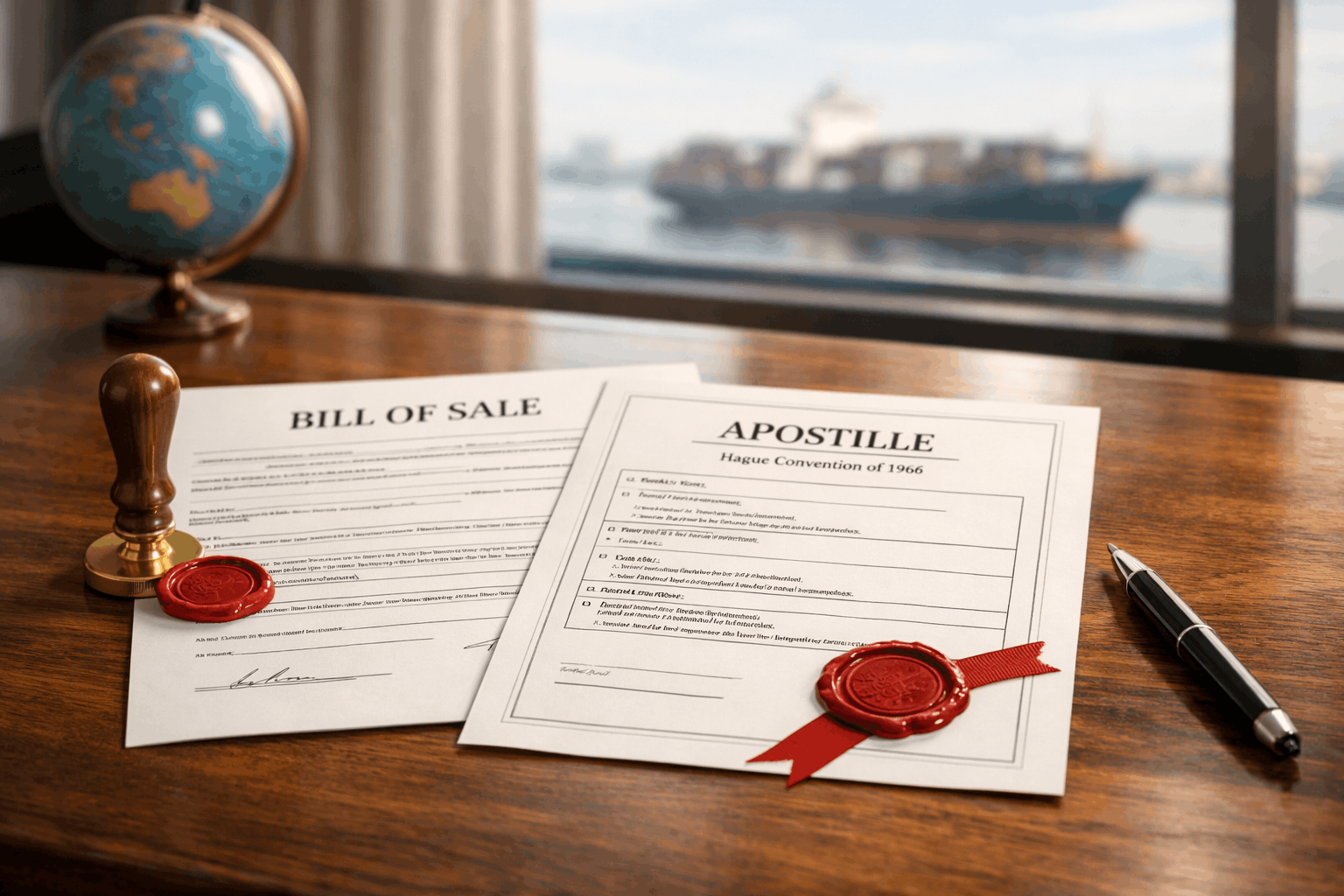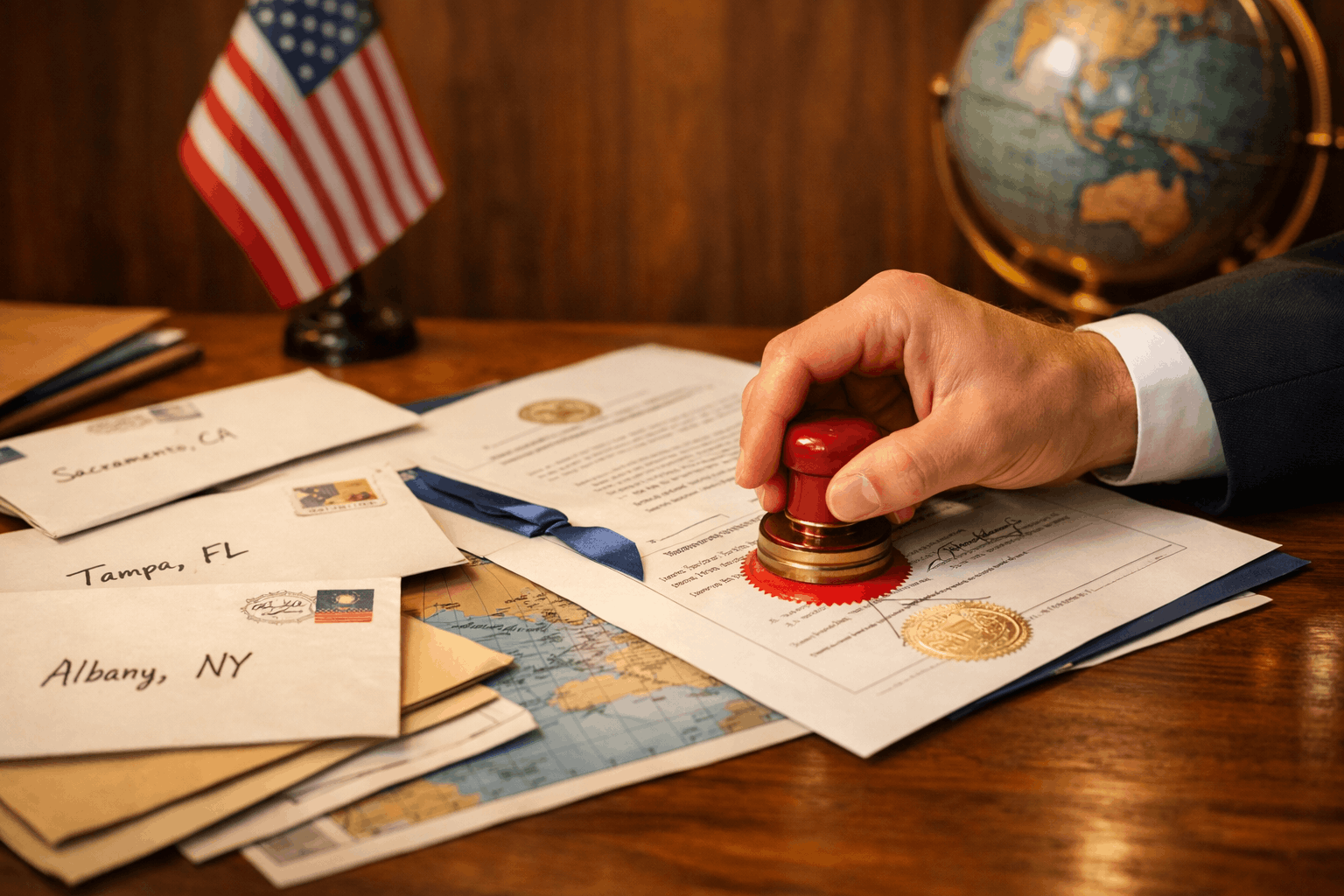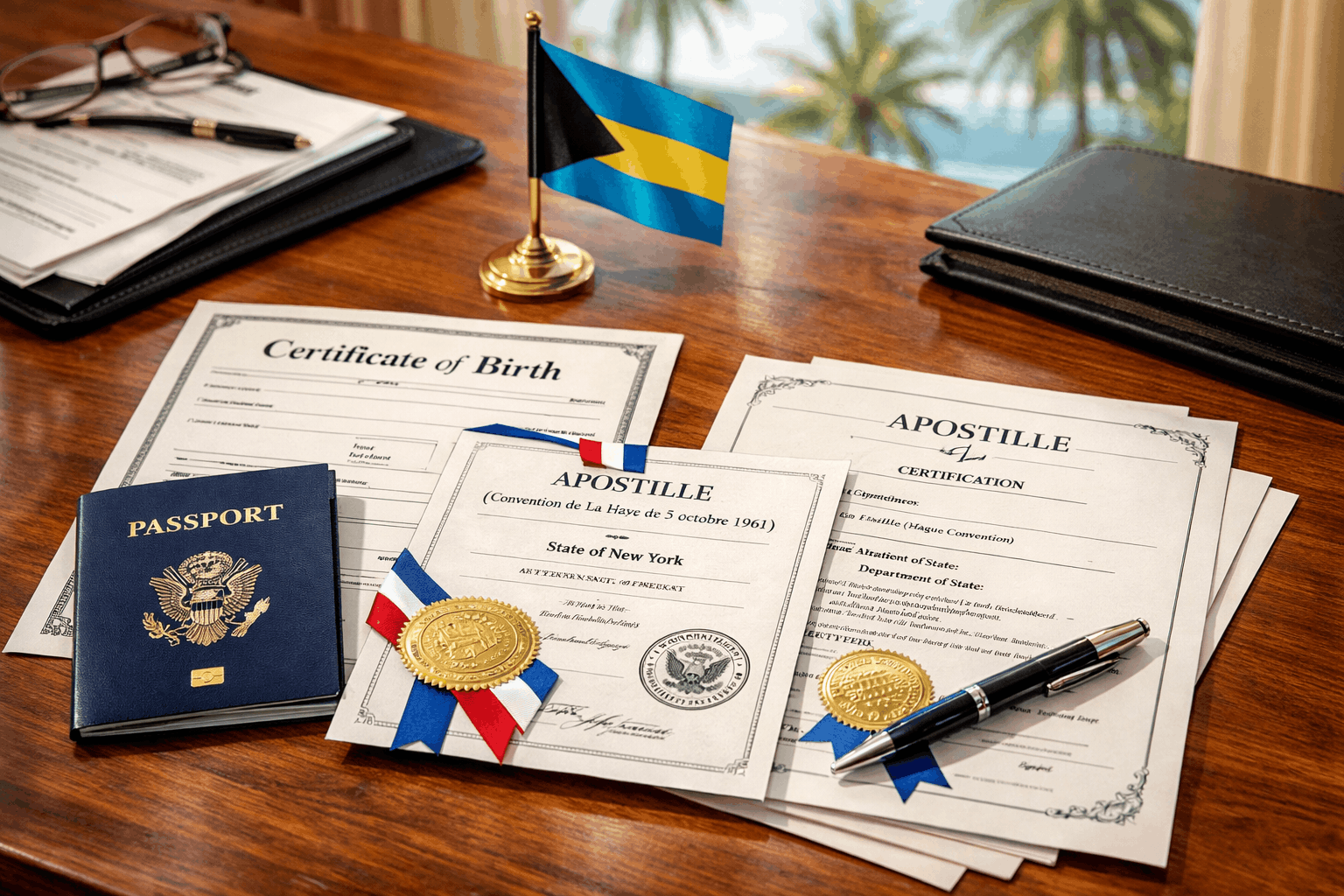
How to Obtain an Apostille in Massachusetts | A Guide
Do you need a Massachusetts apostille to settle legal matters overseas? The process might be complex, so it’s essential to understand the requirements for getting an apostille in Massachusetts first. This post will break down the journey to authentication and how expert services at EZ Apostille can save you invaluable time and reduce the stress of meeting tight deadlines. Let’s dive in!
Accepted Documents for Apostille in Massachusetts
It’s worth noting that not every document follows the same authentication path. Therefore, the initial step is to verify your document’s eligibility. The most common documents for the apostille in MA generally fall into several key categories, which we outline below.
Vital Records
They include personal documents such as copies of birth/death certificates, marriage licenses, or divorce decrees. To qualify for a state-level apostille, request one from the clerk’s office or the Registry of Vital Records and Statistics. Photocopies or hospital records will be rejected for the apostille process.
Legal Documents
Powers of attorney and business agreements often need an apostille to be recognized in a foreign country. Legal papers include those recorded by a government office or signed by a state-commissioned notary public. Some other examples are single status affidavits, probate records, and court-issued documents.
Corporate Documents
When finalizing a business transaction abroad, you’re often asked to present apostilles for your Massachusetts corporate documents. They include company registers, articles of incorporation, resolutions, and tax returns. To meet eligibility standards for an apostille, you must use notarized or certified copies issued by the relevant state authority.
Other Documents
This covers other essential paperwork requiring authentication for international acceptance. Think of an academic transcript from a state institution or a professional license from an accredited entity. The key requirement remains the same: the document must be either issued by a government agency or properly notarized within the state border.
Preparing Your Document for Apostille
Good preparation saves you from costly mistakes and delays. Before submission, confirm that your documents have met Massachusetts apostille requirements. This involves verifying the paperwork’s origin, ensuring certified or notarized copies are obtained if required, and inspecting physical conditions. Here’s what to do:
Confirm Document Authenticity and Issuance
Massachusetts only authenticates documents from its official agencies. This means you should first verify your document’s origin by checking the public official who signed it. For instance, a birth certificate from the Registry Division of the City of Boston qualifies for the state apostille. Out-of-state birth certificates won’t be accepted and must be sent to the state where they originated for authentication.
Obtain a Certified Copy or Notarized Original
To qualify, documents can’t be simple photocopies. Instead, you’re asked to provide certified copies or notarized originals, depending on the document type. Vital records and court papers are certified by the authorities that issued them. Other non-recordable paperwork, like a business agreement, must go through notarization before submission for apostille processing.
Formatting and Legibility Requirements
Your document must be in pristine condition for authentication. Review it to ensure all text, signature, and stamp are legible without any damage or alterations. Remove staples or paper clips that might leave markings on the paper. Again, don’t submit photocopies or scans as they will be rejected immediately.
Submission Process to the Massachusetts Secretary of the Commonwealth
As you have prepared your document, understanding how to get an apostille in Massachusetts hinges on the approval process. You can either mail or request in person, and the method you choose directly impacts the required fees, payment options, and processing time. Let’s reveal how everything works below.
Where to Submit
Apostille requests must be submitted to the Commissions Section at the Massachusetts Secretary of the Commonwealth. Walk-in submission is available at the physical addresses in Boston, Fall River, and Springfield. You can also opt for mailing, which offers more convenience as you don’t have to line up at the government office.
Fee and Payment Method
The standard state fee per document is $6.00. When sending a mail-in request, you must include a check or money order made payable to the Commonwealth. Cash payments are only accepted for walk-ins at the office. Calculating the total amount correctly and using a proper payment method is crucial to avoiding delays.
Processing Timeframes
For mail-in submissions, standard processing times are typically within 2 to 3 weeks. This timeframe doesn’t include mail transit. Apostilles are ready for pickup on the same day, provided that your request is made before 4 p.m. Note that there’s a limit per customer at the office, which is a maximum of 3 documents.
After Submission
If you choose the mail-in option, your successfully apostilled document will be returned via the prepaid mailer you provided. You’ll receive a notice when your request is rejected — it often happens due to incorrect notarization or the document being out of state. You then fix the issue and restart the process, which might cause setbacks to your global journey.
Tips & Best Practices
Always start the apostille process by checking the destination country’s specific requirements. There might be additional certifications to obtain beyond the apostille. Additionally, the most frequent pitfall is using photocopies — it’s important to work with only the originals, certified copies, or notarized papers. Keeping these points in mind helps prevent costly rejections and ensures the document is accepted in the receiving country without unwanted surprises.
Consider Expedited Services for Time-Sensitive Matters
Our expedited apostille services in Massachusetts are your ideal solution when deadlines loom. At EZ Apostille, we prioritize a seamless customer experience when handling document authentication, which is embedded in our offerings. We look after everything — from document evaluation to personal submission. Local expertise allows us to navigate requirements efficiently and eliminate errors. Trust our team to turn long waits into a few days for last-minute cases.
Closing the Loop on Document Authentication
It takes patience to solve the Massachusetts document authentication puzzle. While the DIY approach is an option, our expert handling is a strategic investment, especially for important international proceedings. We’re dedicated to processing documents accurately and accelerating turnaround times so you can confidently achieve your goals abroad.
FAQ
Can I request an apostille in person, by mail, or both?
You can request an apostille in person and by mail. Generally, walk-in submissions return results faster, and you might get authentication on the same day.
Do I need document translations before or after obtaining the apostille?
In Massachusetts, you should have your document translated before requesting an apostille. Then, submit the document and the translation to the state office for apostille processing.
What happens if my paperwork is damaged or altered?
There’s a high chance authorities will reject it. Request a replacement or another certified copy from the relevant authority before continuing with the apostille.
Is notarization different from the apostille?
Yes. Notarization is a form of document authentication performed by a notary public for use within the U.S. In contrast, the apostille is often issued by a Secretary of State’s office to validate public documents for international use.
Can I have others submit my documents on my behalf?
Yes, a third-party individual or service can submit documents for you without any special authorization.
What should I do if the destination country demands consular legalization rather than an apostille?
If the destination country is a non-member of the Hague Convention, you’ll have to embark on the more lengthy legalization route. This usually involves obtaining a Massachusetts certification, federal authentication, and legalization from a consulate or embassy.





